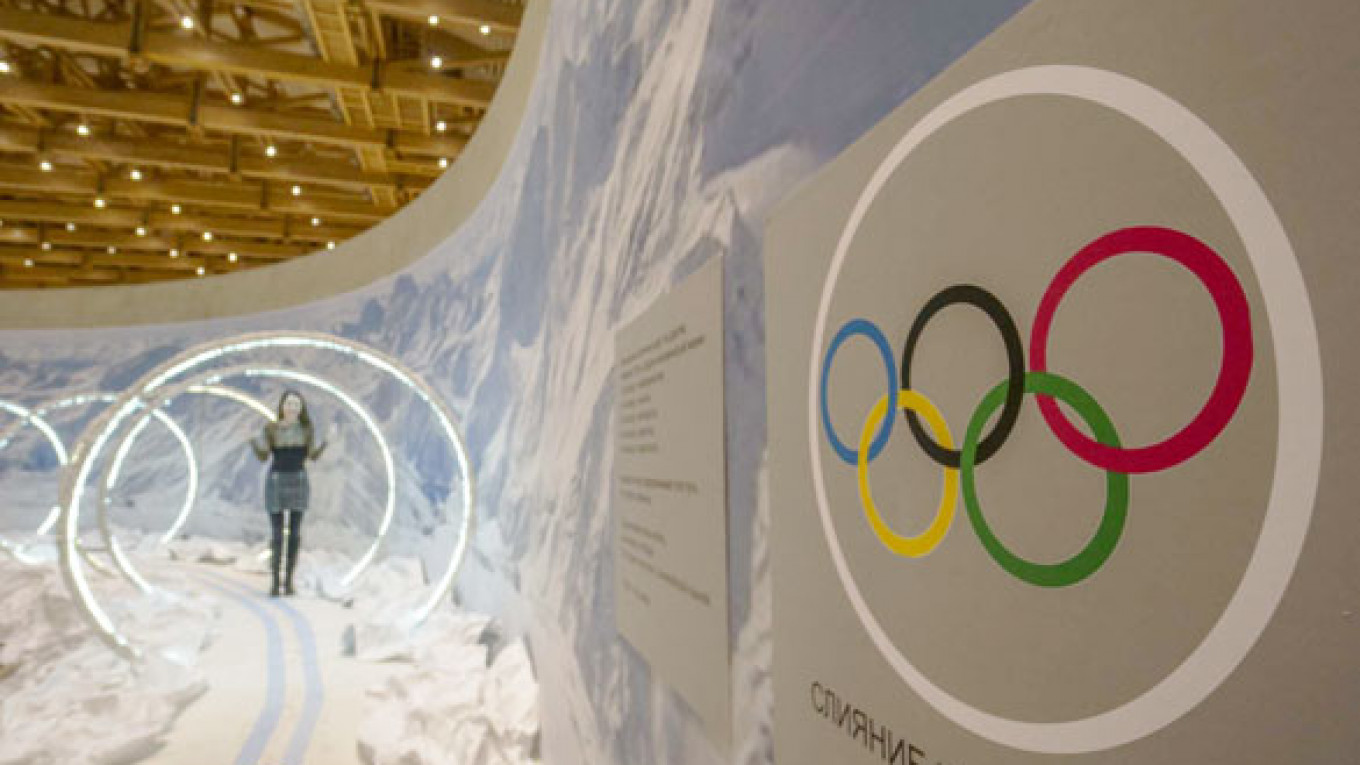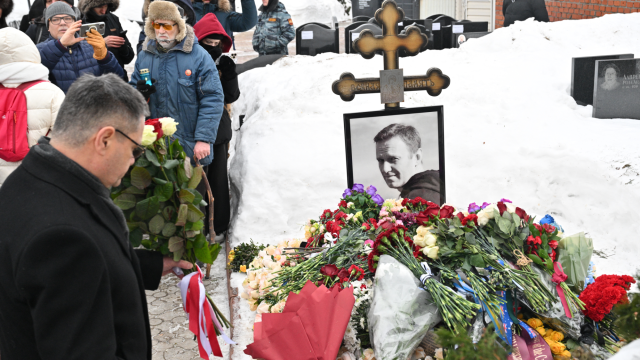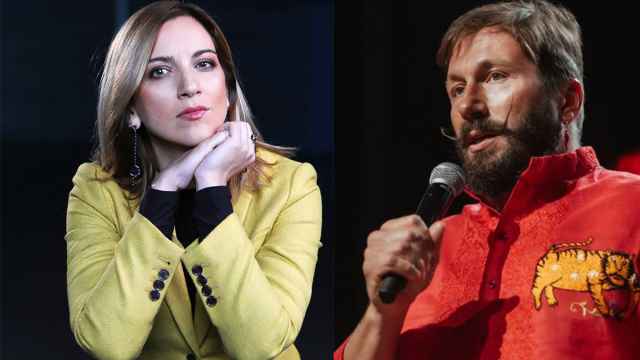While a lucky few have taken vacations, bought tickets, booked hotels — spent a bunch, in short — and taken off for the excitement of Sochi, the rest of us are left to catch up on the Olympics via television and Internet. However, for those who want a more tangible Olympic experience, there is no shortage of exhibits with photography, art, history and artifacts that can make one feel close to the excitement.
See the Photo Gallery: The Olympic Exhibit At Manezh
Moscow Manezh, the largest, priciest and most central venue in town has not missed out on the Olympic excitement — their exhibit "Season of Victory!" is dedicated to the XXII Winter Olympic Games in Sochi and presents a broad and motley assortment of olympic memorabilia and paraphernalia, from sporting equipment like a collection of luges — the only such collection in Russia, Manezh tells us — to an array of Olympic medals and commemorative coins, which are remarkable mainly in the startling lack of creativity that many of their designers have shown over the years.
The exhibit also gives a nod to some of the adored sportsmen and women of years gone by, and displays the full costume and skates of N. A. Panina-Kolomenkina, Russia's first Olympic medal winner, as well as personal items from many other Russian Olympians. While Manezh is one of Moscow's pricier exhibit venues, the show is well-curated and entertaining to see.
Nearby in GUM, the tiny Pobeda Gallery is marking the Sochi Games in its own way, with an exhibit of photography by Thomas Dworzak, a photographer from the Magnum Photos cooperative who previously lived in Tbilisi and has traveled throughout the Caucasus over the past 20 years. Similar to the better-known Sochi Project from Dutch journalists Rob Hornstra and Arnold Van Bruggen, Dworzak's work shows the everyday life of the region's residents, far from the glittering lights and security of the Olympic stadiums.
Dworzak's work is given added depth by the long time period over which he took his photos: We get a sense of history as the area transitions from Soviet to Capitalist, backwater to Olympic hotspot. We see Soviet apartment buildings and mustachioed men in Lenin caps, horsemen riding through the wild Caucasus and women in bright scarves — the scenes are truly a world away from the images of triumphant athletes and shouting crowds that have been shown this week in the media.
The fact that the photos are printed in an extremely small format, resembling old-fashioned Polaroid film, makes them look even more like someone's personal photos showing family and friends. Aside from the photography, Pobeda has printed an enormous map of the Caucasus on the wall of the gallery, which charts Dworzak's travels.
The Multimedia Art Museum, or MAMM, is rapidly becoming one of Moscow's trendiest exhibit spaces, and they have not missed the Olympic wave. Choosing a slightly more traditional way to view the Olympics, MAMM has worked with RIA-Novosti to put together an exhibit of news photography, ranging from the Helsinki Olympics in 1952 to 2012's London Olympics.
The photographs are more or less what you would expect from news photography at the Olympics: They capture the athletes, their struggles, the joy of victory and the heartbreak of defeat. Again, we see famous Russian Olympians of all shapes and sizes from throughout the latter half of the 20th century, from titanic Soviet weightlifter Leonid Zhabotinsky to more sprightly modern Olympians like Yevgeny Plyushchenko and Alina Kabayeva. While predictable, the photography is certainly of the highest quality, and the many other interesting exhibits at MAMM make it worth a visit.
While these three exhibits may be highlights, they are by no means the only sport-related events going on in Moscow this week. The Museum of Moscow has an exhibit on the history of sports in Moscow, and even the Sakharov Center has gotten on the bandwagon and put together a show about the Olympics.
If you really are starved for things today, there is probably even more out there — but you might be better off just watching television.
Contact the author at [email protected]
A Message from The Moscow Times:
Dear readers,
We are facing unprecedented challenges. Russia's Prosecutor General's Office has designated The Moscow Times as an "undesirable" organization, criminalizing our work and putting our staff at risk of prosecution. This follows our earlier unjust labeling as a "foreign agent."
These actions are direct attempts to silence independent journalism in Russia. The authorities claim our work "discredits the decisions of the Russian leadership." We see things differently: we strive to provide accurate, unbiased reporting on Russia.
We, the journalists of The Moscow Times, refuse to be silenced. But to continue our work, we need your help.
Your support, no matter how small, makes a world of difference. If you can, please support us monthly starting from just $2. It's quick to set up, and every contribution makes a significant impact.
By supporting The Moscow Times, you're defending open, independent journalism in the face of repression. Thank you for standing with us.
Remind me later.






